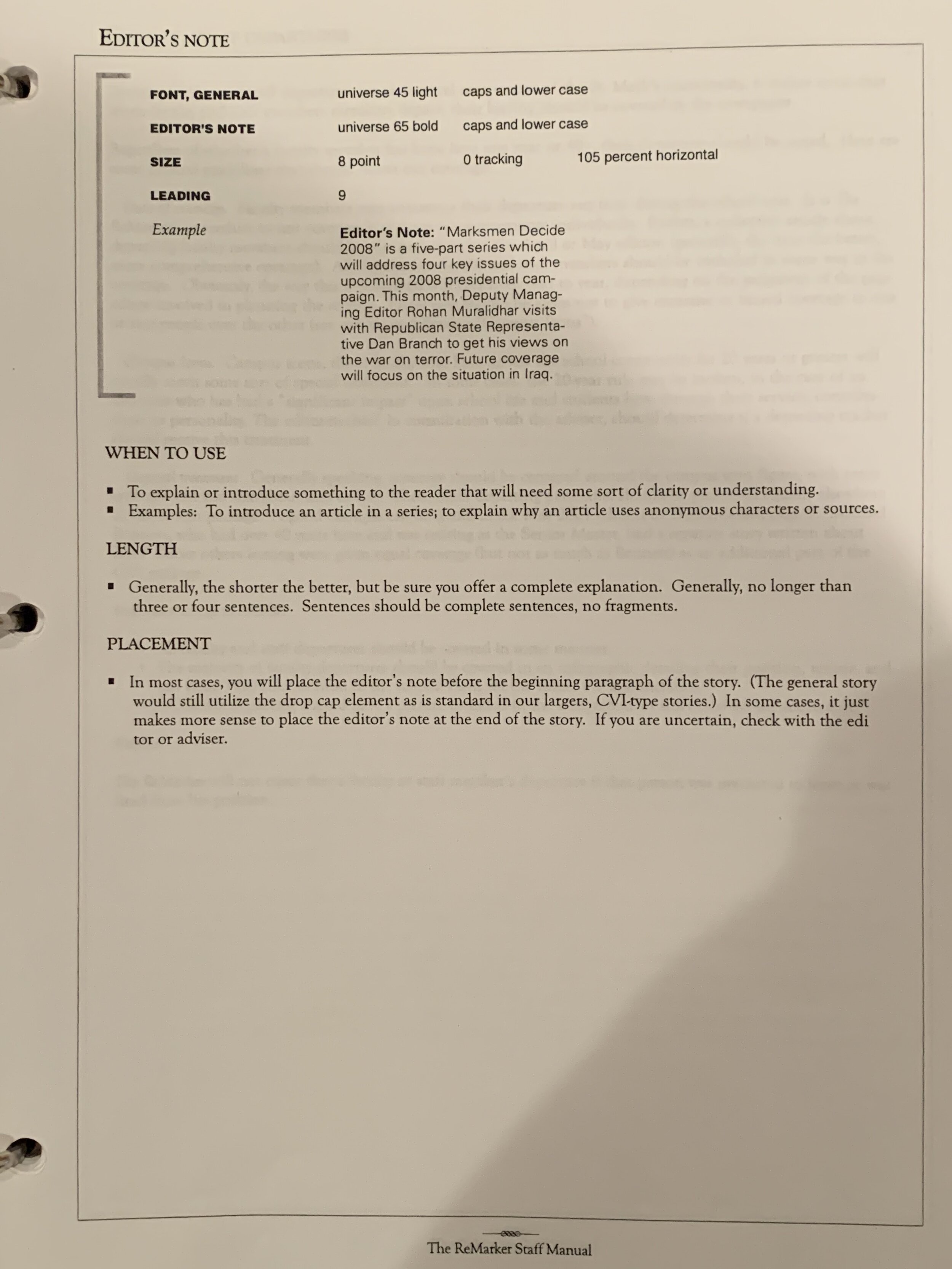
Law and Ethics
Law and Ethics
As journalists pursue truthful story-telling, they must always be mindful of the rules that govern their craft – rules that are both legal and moral. These rules ensure consistency and assure readers of legitimacy and credibility. By upholding both moral and legal obligations, a publication can earn a readership’s trust and guarantee a faithful audience.
The basics
Below you can see the handouts and lessons about journalism law and ethics I learned as a freshman in my introductory Journalism-1 class. These Supreme Court cases laid the groundwork for my understanding of the correct way of reporting.
Remarker Policy
Anonymous sources
When it comes to sensitive topics, The ReMarker offers sources the option of anonymity to protect their identity. We prefer to avoid it when possible but understand it’s necessary for some people to feel comfortable sharing in complete honesty.
Errors
Just like every publication, The ReMarker isn’t perfect. We mess up just like everyone else, but we also point out our mistakes when they’re brought to our attention. This practice helps maintain trust between us and our readers.
Obituaries
Obituaries, which we prefer to call “tributes,” posthumously honor particular members of our community. We have a very specific policy regarding obituaries and approach them carefully, especially considering the emotional impact they can have on our community and sources.
Visuals
Knowing which visuals can be used in print as well as how to attribute credit for them is an important part of our process at The ReMarker. Copyright laws can sometimes be iffy and confusing, so whenever we are unsure, we always err on the side of caution.








